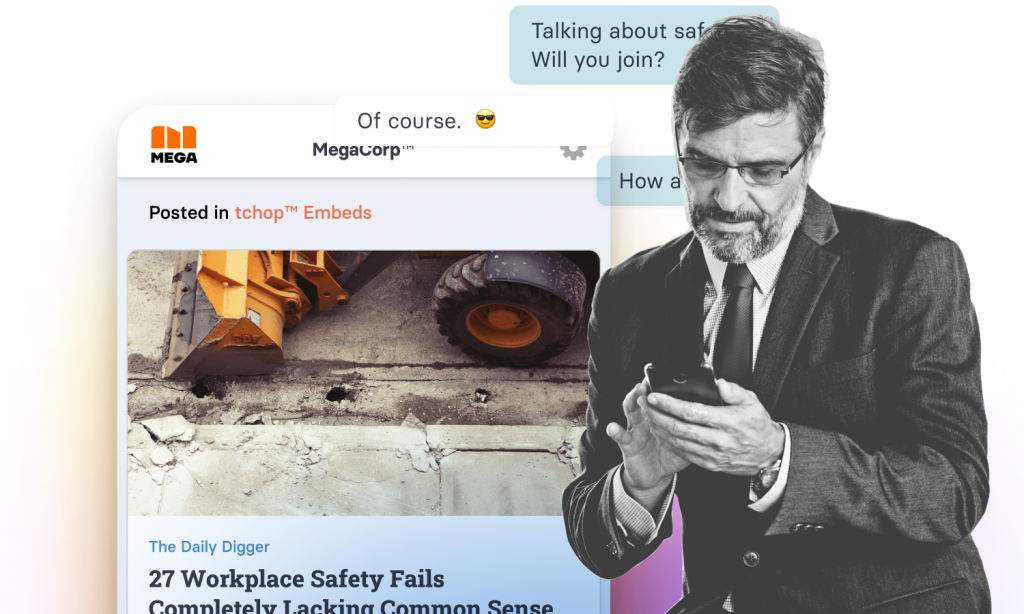
As we sail further into the digital age, AI’s promise is both enticing and, at times, enigmatic. Especially when it comes to community management, generative AI presents a Pandora’s box of potentialities, fraught with challenges as well.
Communities, inherently human and multifaceted, demand a delicate touch (see our blog post about it here). Generative AI, with its dynamic capabilities, offers tantalizing benefits, but there are several pitfalls we need to navigate (also see this great post about the topic here).
Responsiveness vs. Relevance
Generative AI excels at rapid responses. But in the realm of community management, speed isn’t the sole concern. Relevance and appropriateness matter immensely. Generative AI, still in its evolving phases, might sometimes miss the nuance, leading to misplaced or irrelevant responses.
Even with sophisticated training data, AI can occasionally misinterpret sentiment or context, leading to answers that, while technically accurate, miss the mark in terms of relevance.
Human Nuance and Machine Learning
Human communication is intricate. It’s laden with subtext, cultural references, idioms, and emotions. Generative AI, despite its prowess, sometimes struggles to grasp these subtle nuances.
While algorithms tirelessly evolve, they’re yet to perfectly mirror human comprehension. For community managers, this means AI might inadvertently misread a situation or escalate a benign comment, leading to potential discord within the community.
Security Concerns: AI’s Achilles’ Heel
Generative AI relies heavily on data, often vast amounts of it, to function efficiently. This brings forth concerns about data security and privacy. In community management, where personal data and sensitive information might be discussed, ensuring AI doesn’t inadvertently breach privacy becomes paramount.
Moreover, as AI tools become more prevalent, they also become attractive targets for cyberattacks. Ensuring that these systems are robust against malicious threats is a challenge in itself.
The Risk of Dehumanization
Communities thrive on human connection. The risk with relying heavily on generative AI is the potential loss of that genuine human touch. Automated responses, no matter how advanced, might lack the warmth, empathy, and understanding that a human community manager can provide.
Members might feel alienated if they believe they’re interacting with a machine rather than a person, leading to diminished trust and engagement.
Ethical Implications: Walking the Tightrope
Using generative AI in community management comes with its share of ethical concerns. From potential biases in the AI’s training data to concerns about transparency in AI-driven decisions, there’s a lot to consider.
Community members have a right to know if they’re interacting with an AI, and ensuring this transparency while maintaining engagement is a delicate balance to strike.
Costs and Complexity
Deploying generative AI isn’t just a matter of flipping a switch. It demands considerable resources, both in terms of finance and expertise. Training AI, curating datasets, and continuous monitoring and tweaking can be resource-intensive.
Generative AI models are not always accurate, and they can sometimes generate incorrect or misleading information. This means you need to invest resources to validate and check results.
For smaller communities or those with limited budgets, these challenges might be especially daunting. They must weigh the benefits of AI against the potential costs and complications.
Continuous Evolution: A Never-ending Journey
AI is not a set-it-and-forget-it tool. It requires constant refinement. As communities grow and change, the AI must adapt. New slang, emerging trends, or shifting community dynamics can all impact the AI’s efficacy.
This means community managers can’t simply rely on AI; they must be actively involved in its training and evolution, ensuring it remains a relevant and valuable tool.
Conclusion: The Future Intersection of AI and Community
Generative AI, despite its challenges, holds undeniable potential for community management. While the road is fraught with hurdles, with careful navigation, AI can become a valuable ally.
The key lies in finding the perfect symbiosis – leveraging AI’s strengths while mitigating its weaknesses. Only then can we unlock its full potential in community management.







